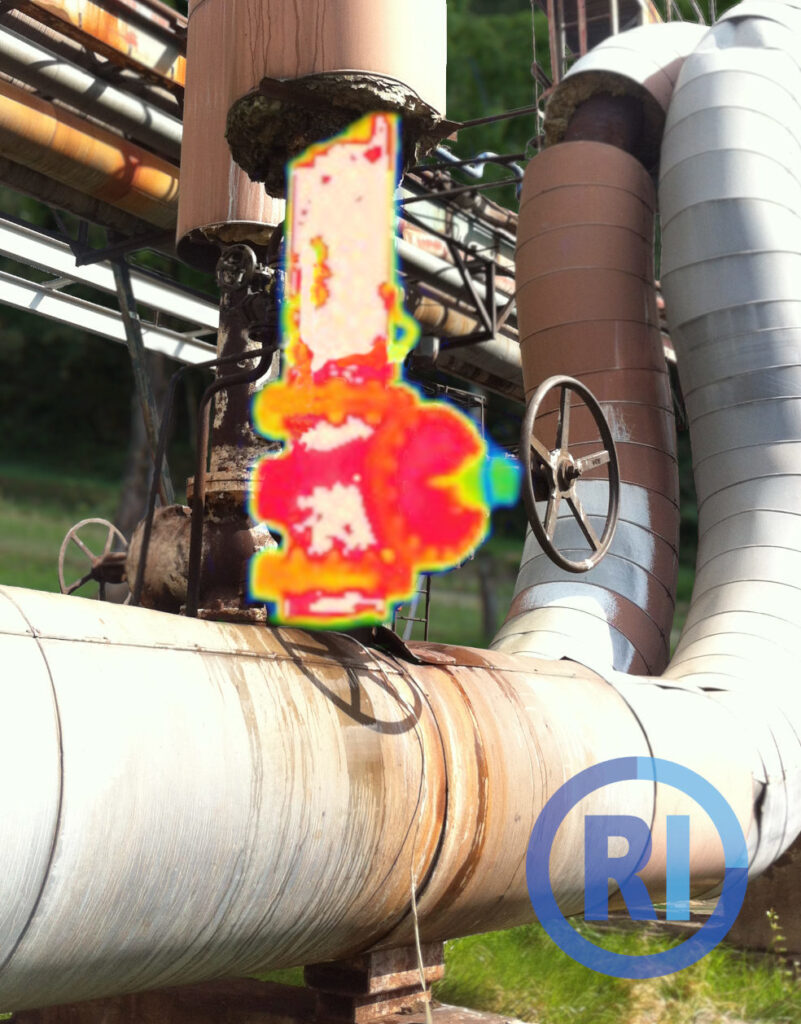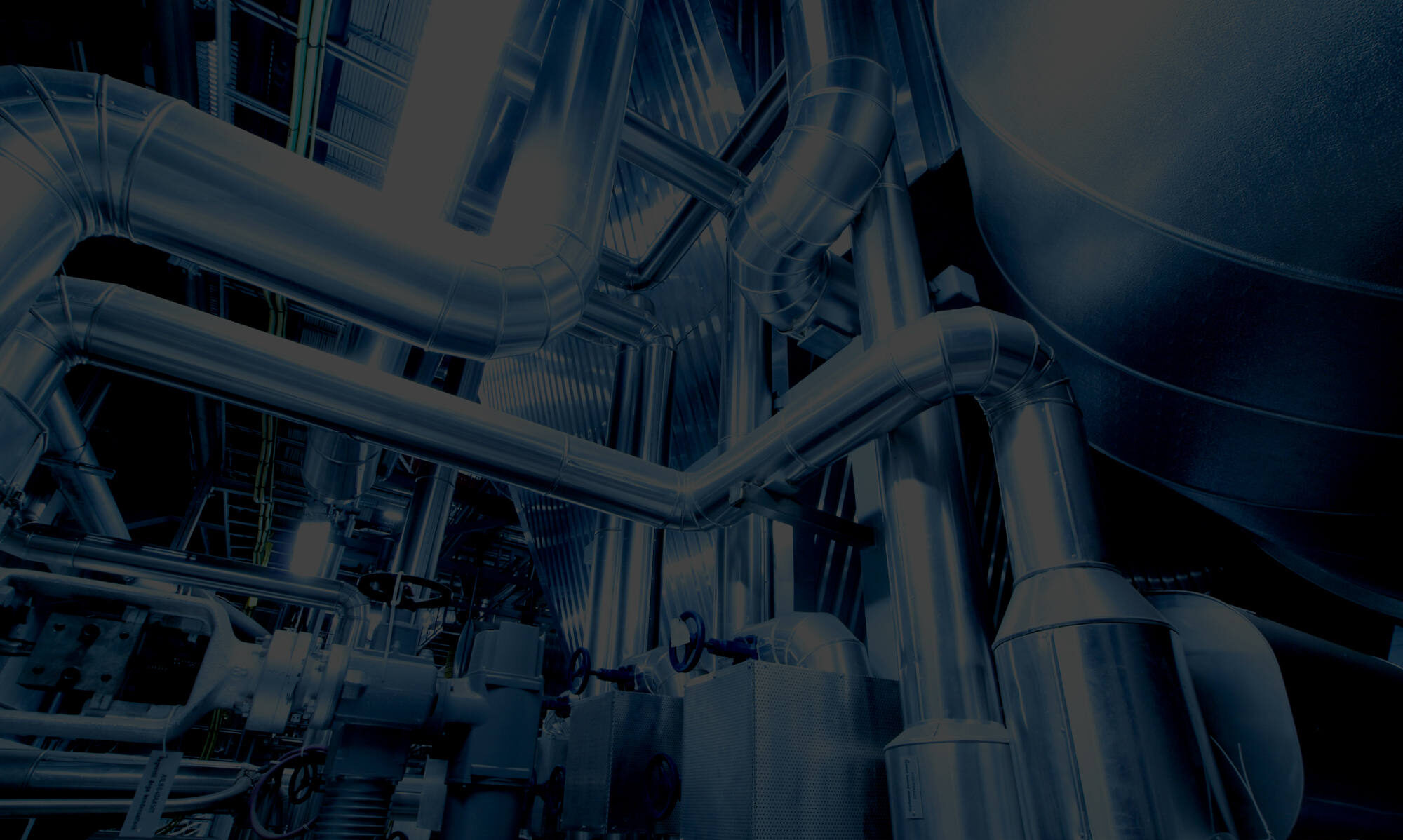
Industrial plants can only be operated cost-effectively and sustainably if insulation systems are installed in accordance with the generally recognised rules of technology and are constantly maintained.
Damage to the metal cladding can result in rainwater penetrating the insulation system. On the one hand, moisture reduces the insulating effect, on the other hand, moisture in insulation systems can lead to damage to the insulation system as well as to corrosion of the insulated object. In addition to increasing energy losses, damage due to corrosion can also lead to spontaneous, dangerous system failure and thus to unwanted system shutdowns and costly maintenance measures.

Uninsulated objects in industrial facilities represent massive energy losses. The European Industrial Insulation Foundation (EiiF) introduced so-called TIPCHECKs more than 10 years ago. TIPCHECK stands for Technical Insulation Performance Check. Specially trained TIPCHECK engineers are able to quickly discover and quantify potential savings in industrial plants. This programme is a standardised audit in accordance with ISO 50002 and EN 16427.
Payback times can be in the range of a few months, depending on the operating conditions. In particular, previously uninsulated components of permanently running systems represent massive energy losses. Retrofitting insulation not only saves thermal energy but can also significantly reduce CO2 emissions. Especially in view of extremely increased energy and CO2 emission certificate costs, insulation work can pay off very quickly.
The EiiF Tesla example shows impressively that the annual energy losses of an uninsulated DN 150 fitting operated at 150 °C all year round could power a Tesla for 20,000 km. Find out more here: www.eiif.org
To increase the efficiency of your operational system, we can support you as follows:
Expert Opinions and Inspections
- FROSIO Insulation Inspection
- Drone Inspections of Insulation Systems
- Conformity assessment execution vs. insulation specification taking into account new DIN 4140, VDI 4610, VDI 2055, DIN EN ISO 12241, CINI, Technical Letters of the Federal Department for Heat, Cold, Sound and Fire Protection in the Main Association of the German Construction Industry (TA WKSB), DIN 18421, Worksheets of the Working Group for Industrial Construction (AGI Q Worksheets), …
- Determination of causes in the event of damage
- Conformity assessment execution vs. recognised rules of technology or state of the art
Energy Efficiency / Energy Audits / EiiF TIPCHECK Energy Audit
- EiiF TIPCHECK Energy Audits according to EN 16247 / ISO 50002
- Drone Inspections of Insulation Systems
- Assessment of insulation systems with regard to energy efficiency (e.g. according to VDI 4610)
- VDI 4610 energy efficiency class determination
- Reduction of CO2 emissions with the help of optimised thermal insulation systems
- Calculation of economic and ecological insulation thicknesses to increase energy savings, taking into account local conditions (e.g. lack of space) according to VDI 4610, VDI 2055, DIN EN ISO 12241, DIN EN 17956, new DIN 4140, …
- Assessment of BAFA-subsidised insulation work
Passive Fire Protection (PFP) in Industrial Plants
- Assessment of passive fire protection insulation systems (e.g. for hydrocarbon fire effects)
- Determining the cause of Corrosion Under Fireproofing (CUF)
Corrosion Under Insulation (CUI)
- Hazard analysis for corrosion under insulation (CUI)
- Determining the cause of CUI
Specifications
- Specification assessment as-is vs. recognised rules of technology or state of the art
Trainings and Best Practice Coaching
- Causes for CUI
- Hydrocarbon fire protection (HC fire protection) of industrial plants
- Increasing the energy efficiency of plant components with the help of appropriate insulation systems
- Understanding of norms and standards (i.e. new DIN 4140, version May 2023)
- Determination of VDI 4610 energy efficiency classes
